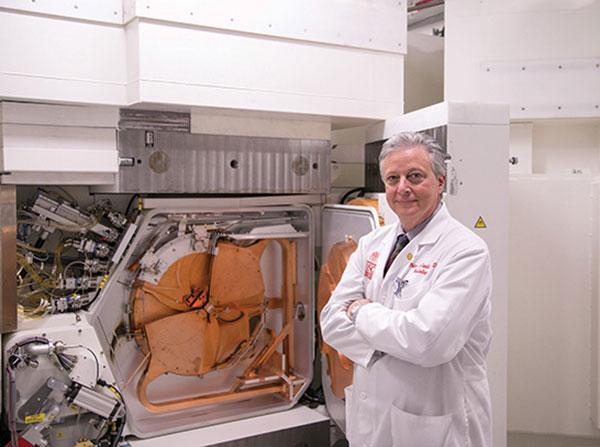
Peter Conti is the director of the Molecular Imaging Center.
A cyclotron is a biomedical use particle accelerator that produces radioactive isotopes needed in order to perform Positron Emission Tomography (PET) imaging. With the evolving world of science and medicine, there are many forms of imaging available to researchers and physicians.
PET imaging is unique in that it provides information on a cellular level. This type of molecular imaging is important in not only diagnosis but in many types of therapy (including cancer therapy), heart disease, and evaluation of Alzheimer’s patients. A cyclotron is necessary in order to produce short-lived radioactive isotopes that will help advance diagnostic imaging and translational research here at USC.
The mission of the new cyclotron facility is to provide expertise in the design, synthesis, and production of radioactive and stable agents for imaging of various disease and research applications. The MIC has a comprehensive radiopharmacy, chemistry, and translational imaging program focused on the development of new radiotracers and other molecular imaging probes for use in interdisciplinary biomedical research and clinical imaging.
by Amanda Busick